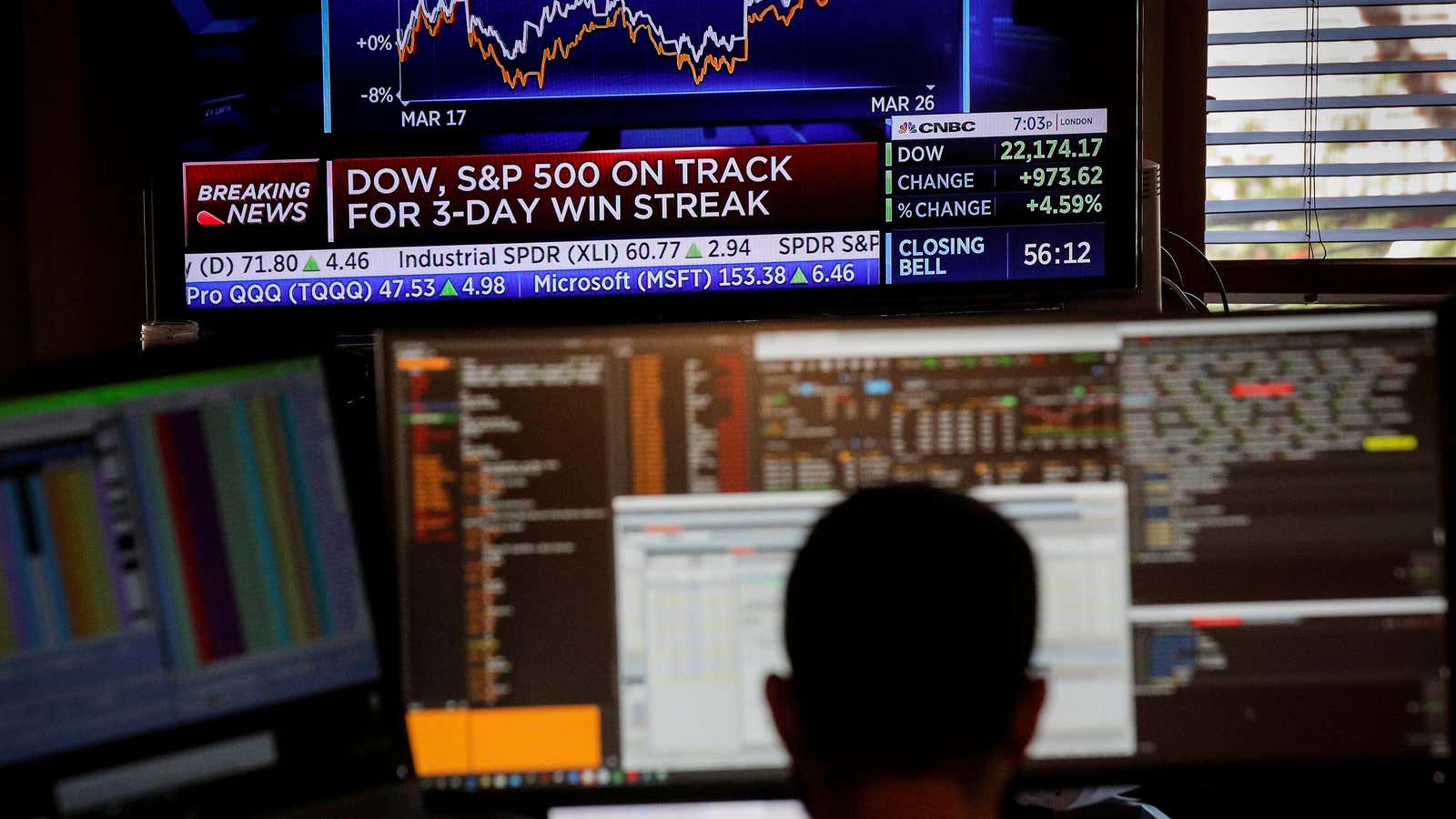As the coronavirus pandemic rips through countries, it’s upending everything in the global economy from junk bonds to prices for orange juice. Governments are shutting down whole commercial sectors to stop the spread of Covid-19, putting a massive crimp in gross domestic product for months to come.
Stocks have slid and oil crashed, but orange juice has emerged as the biggest winner among commodities. OJ futures, which allow traders to hedge or speculate on prices for some later date, have soared as consumers stay home amid social distancing measures. (Consumers may also be seeking out orange juice because it contains vitamin C, in hopes that it will give their immune systems a boost.)
Crude oil is getting hit with a double a whammy: A price war between Saudi Arabia and Russia caused prices to plunge earlier this month, and energy prices typically decline when economic activity slows.
A free fall in global stock markets appears to have been arrested, for now, as governments assemble immense aid packages to support their economies. Officials are planning to spend and lend more than $4 trillion to help workers and preserve industries that have gone into hibernation.
Joblessness has spiked as businesses such as restaurants and hotels shutter, with weekly unemployment claims setting a record in the US. What makes the coronavirus-led recession different from those that came before it is the speed of the disruption. More than 10 times as many unemployment claims were filed in the US during the 2008 downturn, but this time it’s happening much more quickly.
Economists are dialing back their forecasts for GDP. Most of the world’s economies will grow less this year than in 2019, according to the OECD. The scope for GDP to snap back depends greatly on governments’ ability to contain the pandemic.
The coronavirus pandemic is a health and economic crisis, and that’s placing immense strain on the world’s financial system. While major banks were heavily fortified after the crisis in 2008, markets from junk bonds to some types of mortgages have shown signs of buckling as investors flee anything with a hint of risk.
A Federal Reserve index of financial stress, which among other things helps measure the capacity for companies to get funding, has risen to its highest level since the financial crisis a decade ago.
